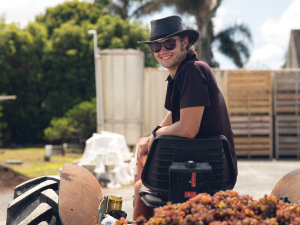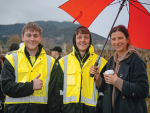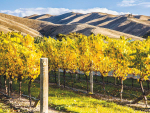Auckland Young Viticulturist of the Year
Tai Nelson, 24
Vineyard Manager at Soljans Estate Winery
Describe a great day at work in less than 15 words.
Coffee, morning emails, tasting with the winemaker, then the afternoon in the vies.
What makes your region special?
Our region is small but great. Auckland and Northland encompass a comparatively large area at the top of the country with a huge number of small boutique wineries. There is such a great variety of micro-climates, varieties and winemaking techniques that each wine is grown and crafted to its ultimate expression. Because of that, we produce some genuinely world-class wines that fly under the radar.
Tell us a little about the theme of your speech.
One of the greatest issues for the New Zealand wine industry is climate change. Higher global temperatures and increasingly erratic weather patterns are making it more difficult to make decisions and predictions in viticulture accurately. Temperature increases are changing what we know about phenological development and bringing the season earlier, while we have more extreme events than ever before. We are being forced to adapt reactively, and while the industry has a carbon-neutral goal for 2050, we should be aiming to be carbon negative by then, if not sooner.
What are the most exciting developments in viticulture?
For me, it's really exciting to see old practices developed over hundreds of years being reintroduced with the accuracy of modern science and technology behind them. The increase in practicing regenerative viticulture alone shows that growers are recapturing the connection to the land that is essential to working with it. What is also exciting is new research currently underway for different rootstocks in New Zealand soils. We have relied for a long time on research from other countries and, while the results are generally good, having locally relevant research will help the industry so much in the years to come.
Hawke's Bay Young Viticulturist of the Year
Nick Putt, 27
Hawke's Bay Vineyard Manager at Craggy Range
Describe a great day at work in less than 15 words.
Working with great people to produce top quality grapes and wine.
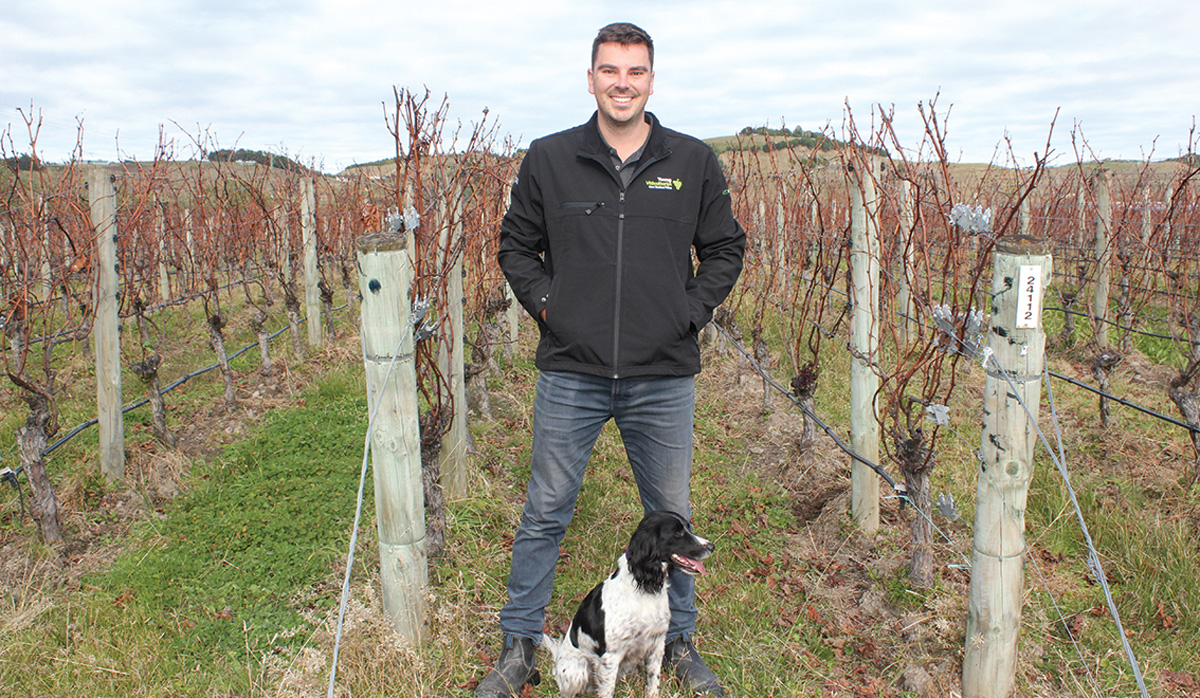 |
|---|
|
Nick Putt
|
What makes your region special?
Hawke's Bay is diverse in every sense - soil, climate, grape varieties, people - and this helps us to make a range of interesting and industry leading wines. The region has a mix of large growers and small boutique wine brands which provide exciting experiences and a cool wine community. This community is made up of some wise heads but also some sharp young people ready to make their mark and produce sustainable wine.
Tell us a little about the theme of your speech.
My speech was about the Austrian wine poisoning scandal, which saw the country's exports drop 95% as a result. This highlights the importance of reputation and how scandals can quickly decimate an industry.
What are the most exciting developments in viticulture?
Integration of technology is something which can help our industry hugely, at a time when inputs are expensive. Currently there are many different systems out there which are now integrating vineyard specific updates. These will help to maximise the use of water and agrichemicals to target high risk periods and vines which are at higher risk.
Central Otago Young Viticulturist of the Year 2023
Nina Downer, 24
Vineyard Supervisor at Felton Road
Describe a great day at work in less than 15 words.
Someone has shouted smoko, I'm in the tractor listening to Brian FM and nothin goes wrong.
What makes your region special?
The people, a tight-knit community of people who are open and friendly and always willing to share their time and knowledge with others. The fact that 25% of our region is under organic certification.
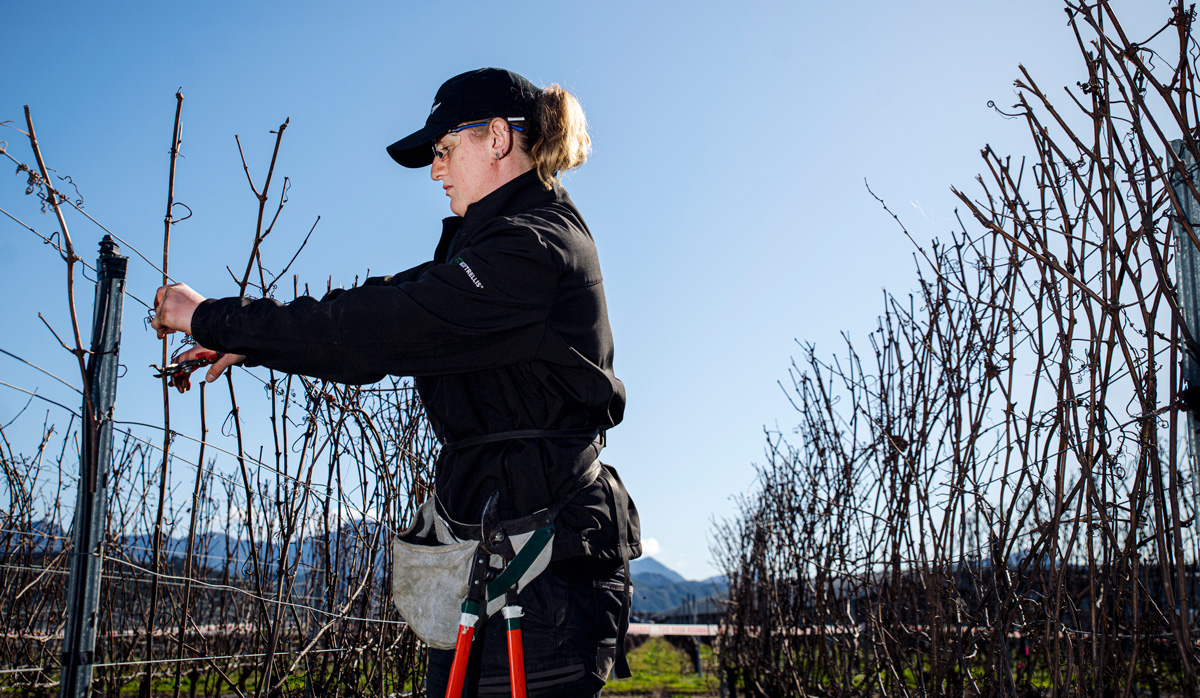 |
|---|
|
Nina Downer
|
Tell us about your speech.
My speech topic was: The Year is 2050 and climate change has meant Pinot Noir is no longer viable to grow in Central Otago, advocate Gamay as our new champion varietal. Throughout the speech, I highlighted the fact that Gamay is a versatile variety that is suited to every wine demographic, from your cheaper everyday bottle to natural wine, to a complex red wine with great aging potential that rivals red Burgundy. How the grape is suited to both cool and moderate climates holding onto acids better than Pinot Noir in warmer vintages. Also, a controversial comment was made about the average price of Central Otago Gamay being more expensive than the average price of Central Otago Pinot Noir found in the Cromwell Super Liquor at that time, and therefore Gamay is already better than Pinot, got the desired reaction from a room full of Central Otago Pinot growers.
What are the most exciting developments in viticulture?
New technologies that are now emerging that will help us as an industry to become more efficient in all aspects, from data collection and analysis to technology that shows real time disease presence in the vineyard, are exciting developments that will make our goals easier to achieve. As growers are beginning to fully embrace the fact that we are going to need to make some changes to meet industry goals to be carbon neutral by 2050, people are now being more environmentally conscious in their business decisions.
Wairarapa Young Viticulturist of the Year
Annika Salenjus, 24
Vineyard Cadet at Craggy Range
Describe a great day at work in less than 15 words.
The best days at work are the ones where the sun is shining and you get to learn something new!
What makes your region special?
The Wairarapa is a small region and the industry here is very close knit as a result. Being new to the area, everyone has been so welcoming and wonderful and made me feel so at home right off the bat.
Tell us about your speech.
My speech was on how the industry can best cope with the increasingly volatile seasons New Zealand has been experiencing in recent years, and specifically whether we should be looking to new management practices or planting new varieties. My stance was that there are benefits to both, and both are important tools for mitigating damage year to year, but focusing on combating climate change itself through regenerative agriculture practices is paramount for the long term.
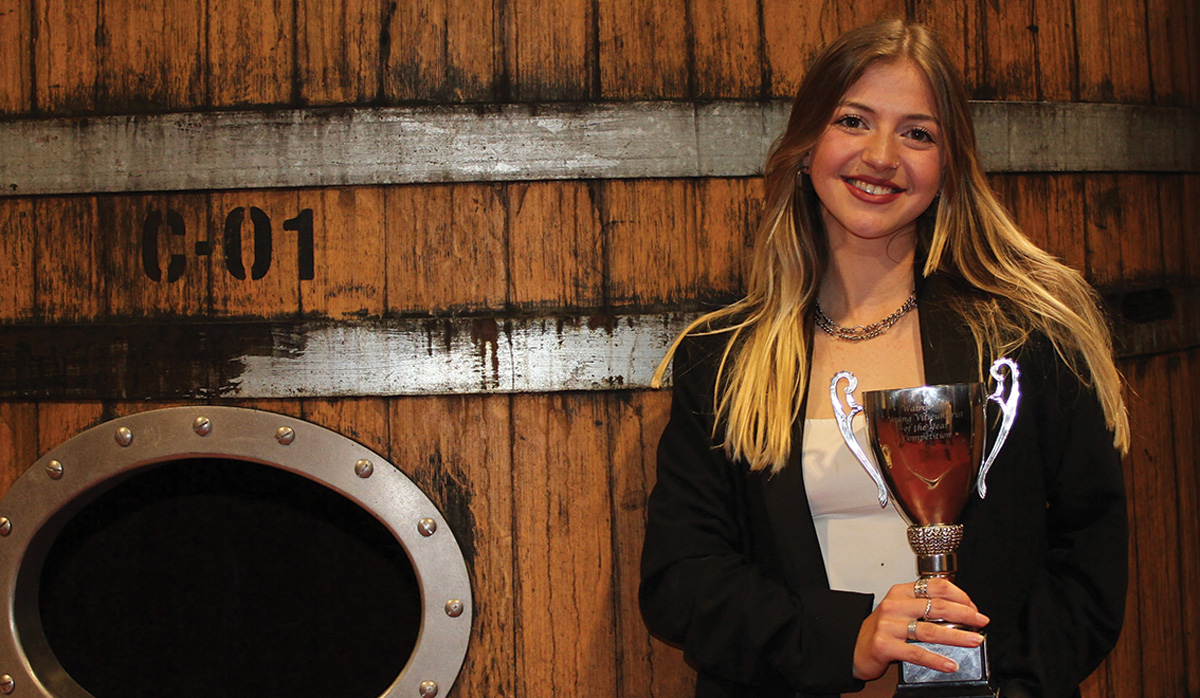 |
|---|
|
Annika Salenjus
|
What are the most exciting developments in viticulture?
For me the most exciting developments in viticulture are those that assist with data collection and tools that allow us to operate with much more precision at the vine level.
South Island Finalist
The South Island regional competition had not been held when this edition went to print. The finalist will be profiled in October, following the National Final August 30.
nzwine.com/en/events/young-vit
Marlborough Young Viticulturist of the Year
Zac Howell, 28
Technical graduate at Indevin. (Currently on secondment in a project coordinator role with the Vineyard Transformation Team.)
Describe a great day at work in less than 15 words.
It’s a Friday, and the sun is shining.
What makes your region special?
It’s hard to go past the place, and the people that make the winegrowing community here what it is. But one of the things I love about Marlborough is that thanks to scale, and a really successful business model with our Sauvignon Blanc, we’re often at the forefront of research and implementing new technologies, which can be really exciting.
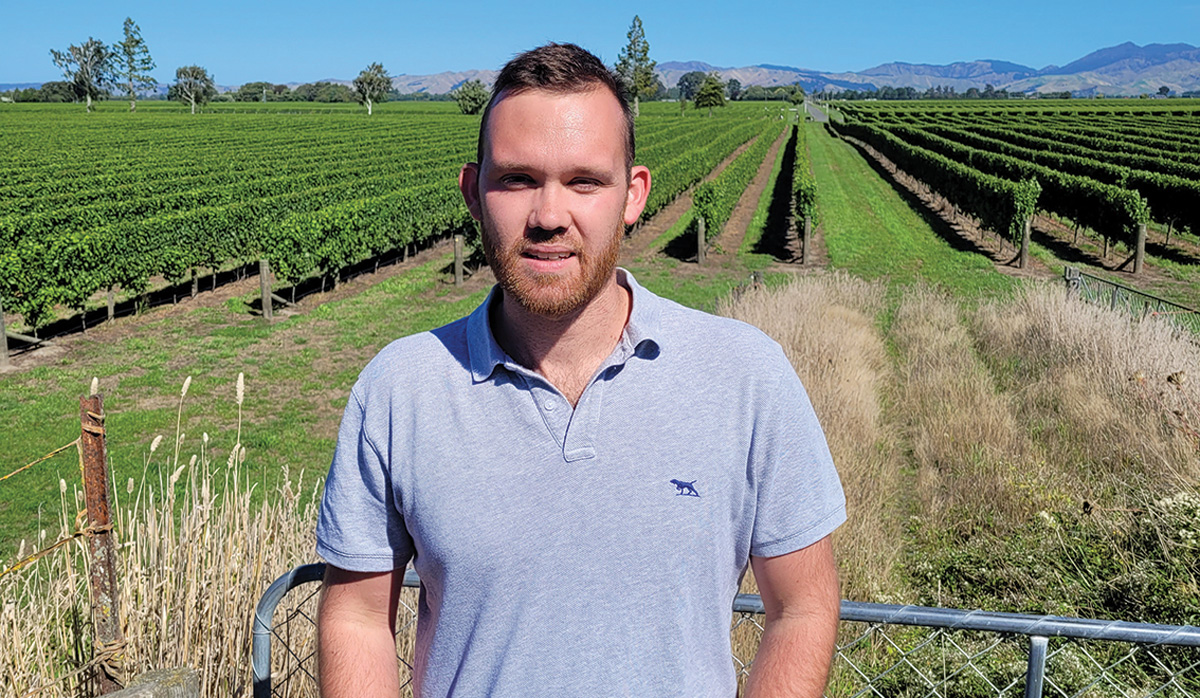 |
|---|
|
Zac Howell
|
Tell us about your speech.
I spoke to the gender pay gap in the New Zealand viticulture industry. Unfortunately, three minutes isn’t a very long time to get into any real detail on such a complex issue, but I think I managed to convey the importance of fact checking, fairness, and the impacts this issue can have on overall sustainability.
What are the most exciting developments in viticulture?
The most exciting developments are really in the technology sector; the New Zealand viticulture industry has a rich history of innovation. Given the challenges the primary sector is facing with respect to workforce availability and the inherent tightening of environmental sustainability regulations, I think this is something we will see continue to ramp up in the coming years.





